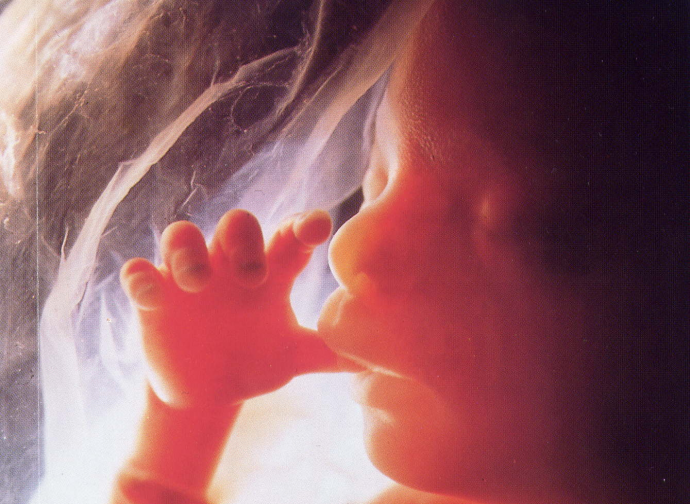South Korea: bishops at the forefront of the fight against abortion
South Korean Catholic bishops are strongly opposing proposals to liberalise abortion, urging the faithful to join the pro-life movement. This movement spreads the Church's teachings in defence of life and helps pregnant women in need.

Recently, South Korean Catholic bishops have made national and international headlines for vehemently resisting propositions to liberalize the country’s abortion laws. In August 2025, Bishop Moon Chang-woo of Jeju, president of the Committee for Family and Life within the Korean Bishops’ Conference, declared a nationwide expansion of the Pro-Life Movement. The bishop stated that the initiative aims to reestablish the “inalienable respect for human life” to public debate and political action, as per a report by the Vatican’s Fides News Agency.
This movement hopes to rally Catholics and public opinion to oppose a proposed amendment to the Maternal and Child Health Act, which would permit abortions even when the fetus is viable outside the womb, eliminating erstwhile restrictions.
“The Church strongly opposes the provision allowing abortion even in full-term pregnancies. I also made clear that it is wrong for the state to encourage abortion by covering it under health insurance,” Bishop Moon said, in statements quoted by UCA News.
Additionally, Bishop Moon urged for South Korean Catholics to get involved in resisting proposed amendments to the country’s abortion laws. “I especially hope women in the Church will clearly voice their thoughts and positions,” Bishop Moon said. “Now is the time to fully engage in the pro-life movement, so I ask the faithful to unite their strength,” Moon emphasized.
Bishop Moon, together with his brother bishops, have contended that such amendments would give rise to “unrestricted abortion,” depriving fetuses of their basic right to life. Notably, Bishop Moon and his colleagues have highlighted the “inalienable respect for human life” as a value premised not solely on Catholic teaching but on the common good. The bishops have called on the South Korean government to design laws ensuring the welfare of both pregnant women and their unborn children.
Also, Father Leo Oh Seok-jun, Secretary General of the Pro-Life Committee of the Archdiocese of Seoul, pointed out the importance of the need for public education regarding abortion. “There have been many discussions on this issue in the past: We are against abortion, regardless of the gestational age,” he declared. In comments cited by Vatican News, the priest added that it is vital to clearly and comprehensively explain the matter to the public “so that believers and all people of good will do not lose touch with the central value of life, namely the dignity of human life.”
Strikingly, the pro-life movement spearheaded recently by the Catholic Church in South Korea includes support initiatives like the “Project for Unborn Life,” which offers care to expectant mothers in need and provides pro-life alternatives to abortion through Catholic health services. Other projects, including “Life 31,” hope to foster a “Culture of Life” via education, advocacy, and cultural activities, transmitting Catholic teachings about the dignity of human life beyond the boundaries of the Church.
By pouring in efforts to safeguard and ensure that the lives of pregnant women and their babies are protected, South Korea’s Catholic bishops have demonstrated the pro-life activism can be constructive instead of merely reactionary to pro-abortion policies and laws.
Notwithstanding quick modernization and rising secularism, the Catholic Church’s moral stance on life issues continues to have a considerable impact in debates in the public arena and policymaking. Bishops who express concerns about questions of life, dignity, and social responsibility are still listened to in discussions on policies, with their comments published by media outlets.
Besides, Catholic advocacy is based not only on Catholic doctrine but universal ethical principles, such as concern for the vulnerable and the necessity to safeguard human life. Bishops like Ku Yoo-bi have even proclaimed that the test of any society is “how it cares for its sick and weak” ,cautioning against a culture overwhelmed by economic efficiency and productivity at the expense of compassion and respect for human life.
For pro-life readers, the Catholic Church in Korea’s attitudes and recent statements opposing abortion is a good example of the Church's enduring role as a moral authority amid an increasingly secularizing South Korea that is currently recalibrating the role of religion in public life. By spearheading the pro-life movement and centering public attention on the importance of the inherent value of all human life, the Church continues to offer a moral compass—however debated and challenged this compass may be by pro-abortionists—to secular South Korea. By doing so, the Catholic Church is once again proving itself to be a beacon of pro-life advocacy and moral compass, providing a distinct and respected pro-life voice for Catholics and non-Catholics alike in the East Asian country.
